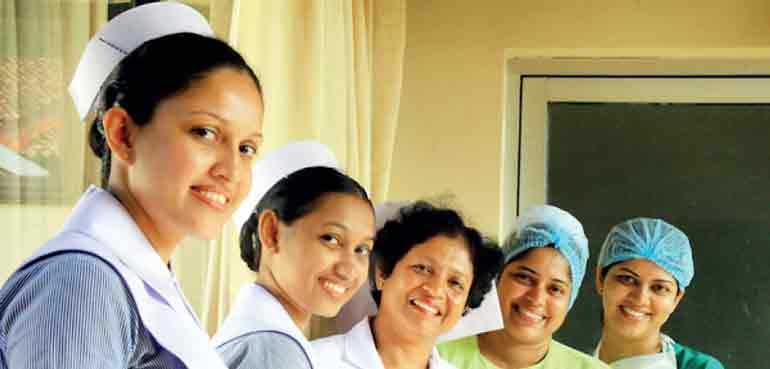Tuesday Feb 24, 2026
Tuesday Feb 24, 2026
Thursday, 29 April 2021 00:00 - - {{hitsCtrl.values.hits}}

Amid a spike in COVID-19 cases, the Association of Private Hospitals and Nursing Homes (APHNH) commended the Government’s decision to commence the roll-out of the second dose of the AstraZeneca vaccine, and called for the prioritisation of private healthcare workers in the second vaccine drive.
According to State Minister of Pharmaceutical Production Channa Jayasumana, priority groups – primarily healthcare workers, the military, and the police – would be given precedence in the vaccine drive set to commence in the first week of May. Handling over 50% of out-patient care in the country, the Association reiterated the importance of private healthcare workers receiving the second dose alongside public sector medical staff.
“As an Association, we’re grateful to the Government officials and authorities that ensured that private healthcare workers were included in the country’s first vaccination drive in February. Nevertheless, only 50% of private medical staff have been vaccinated so far. We hope that as the second doses are rolled out, our frontline medical staff in the private sector will be considered a priority,” remarked APHNH President Dr. Lakith Peiris.
The association noted that the Government is in possession of 350,000 vaccine doses of the 500,000 doses initially provided by the Serum Institute, and was hopeful that a quantity could be reserved for the members of private medical staff that had received the first inoculation.
“While we appreciate the Government’s tireless efforts to protect the public, the urgency of the second vaccine dose for healthcare workers is paramount. We’re deeply concerned that members of the medical staff of the private healthcare sector, who received the vaccine in February, have recently contracted COVID-19. The second dose will afford them a higher degree of protection, which is our main priority now,” continued Dr. Peiris.
According to a press release from AstraZeneca, the Oxford/AstraZeneca vaccine remains to be 100% effective at preventing severe death and hospitalisation, but the efficacy rates of the overall vaccine will rise between the first and the second dose.
“As concern grows over the country’s capacity to handle the pandemic, we would like to reassure the public that we are ready and standing by to assist the Government health forces. Throughout this crisis, private healthcare has played a complementary role to public healthcare in the country, and we hope that the invaluable contributions of private medical staff will be recognised and rewarded,” concluded Dr. Peiris.
Established in 1972, the APHNH represents all the country’s private hospitals and nursing homes. According to official statistics from the Institute for Health Policy, the private healthcare sector accounts for Rs. 193 billion in expenditure on medical goods and services, which amounts to nearly 55% of the country’s total healthcare cost. As the leading representative of this industry, the association plays a vital role in uplifting healthcare standards and building a healthier country.
Through its representation in the Private Health Services Regulatory Council (PHSRC), APHNH plays an important role in the regulation of the country’s private health sector. Over the recent past, its efforts have also included facilitating skills development among healthcare workers, conducting courses for nurses to enhance their capability and contributing to the upliftment of healthcare standards in the country in various ways.